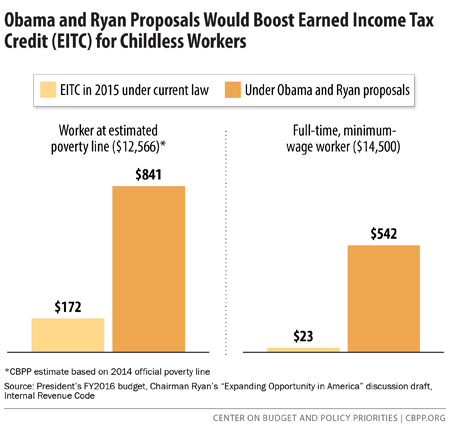June 2016 U.S. Poverty Action
Too often the rhetoric about poverty in America focuses on the “failure” of anti-poverty programs, despite evidence that anti-poverty programs reduce poverty by about half. This month, we'll write letters to members of Congress about about policies to promote economic mobility, while protecting anti-hunger programs. The goal is to deliver hundreds of letters at the RESULTS International Conference and at lobby meetings back home. We also urge you to use to urge your friends and family to do the same.
Below are two different action sheets you can use. You can also download them from our Outreach Actions page as Word or PDF documents (look for the One-page Actions with NEW! next to them).
Congress Must Support Policies that Create Economic Mobility
The most recent poverty data from the U.S. Census showed more than 46 million Americans were living in poverty in 2014, including over 15 million children. Fortunately, the Earned Income Tax Credit (EITC) and Child Tax Credit (CTC) lifted 9.8 million people above the poverty line in 2014, including 5.2 million children. Congress passed a bipartisan tax package in December 2015 that saved key EITC and CTC provisions before they expired, ensuring that 16 million Americans would not fall into or deeper into poverty. Let’s build on that success by expanding the EITC, as House Speaker Paul Ryan and President Obama have both proposed, and start to address wealth inequality by leveraging tax time to build savings..
Use these talking points to write a letter to your members of Congress urging them to expand economic mobility by expanding the EITC for low-income workers without children:
- Introduce yourself as someone who cares about economic mobility in America (if you can share a personal story, that is very powerful!).
 Share your concern that there is one group of workers that the tax code actually taxes into or deeper into poverty: low-wage workers without children.
Share your concern that there is one group of workers that the tax code actually taxes into or deeper into poverty: low-wage workers without children.- Mention that House Speaker Ryan and President Obama have proposed to remedy this by expanding the Earned Income Tax Credit (EITC) for low-wage workers.
- In addition, urge policymakers to prioritize policies to reduce wealth inequality and the racial wealth gap, including proposals to use tax time as a moment to build emergency savings and economic mobility.
- Ask your members of Congress to speak to key leaders, particularly House (Speaker Paul Ryan, House Ways and Means Committee Chairman Kevin Brady and Ranking Member Sander Levin) or Senate (Finance Committee Chairman Orrin Hatch and Ranking Member Ron Wyden) leaders, and tell them to expand the EITC for childless workers and build on tax time to address wealth inequality.
Note: To find contact information for members of Congress, visit our Elected Officials page at: http://capwiz.com/results/dbq/officials/. For other advocacy tips, check out our Activist Toolkit at https://results.org/skills_center/activist_toolkit/.
Tell Congress to Protect Hungry Families
The Supplemental Nutrition Assistance Program (SNAP, formerly food stamps) is the first line of defense against hunger in America. Currently, about 44 million people — almost half of them children — receive SNAP benefits. In 2014, SNAP lifted nearly 5 million above the poverty line (US Census). SNAP has also been found to significantly reduce hunger and poor health in children.
House Speaker Paul Ryan’s Task Force on Poverty, Opportunity, and Upward Mobility issued recommendations for reforming anti-poverty programs on June 7. While short on specifics, RESULTS and many others fear that the proposed changes could reduce SNAP’s critical role in fighting hunger. As members of Congress on both sides of the aisle are taking interest in addressing poverty, what they decide could make a huge difference in the lives of low-income Americans – for better or for worse. This is a chance for lawmakers to expand and strengthen some of the country’s most effective programs on poverty, including SNAP.

Call or write a letter to your members of Congress telling them to protect Americans living in hunger to protect SNAP. Use these talking points for your calls and letters:
- Introduce yourself as a constituent who cares about poverty and hunger (if you can share a personal story, that is very powerful!).
- Inform your members of Congress that in 2014, 1 in 5 children in the U.S. were at risk of going to bed hungry every night. Studies show that children who are regularly hungry suffer from weakened immune systems, slowed and abnormal growth, and anemia.
- Remind them that SNAP is our primary defense against hunger in America and it has been critical in helping low-income families out of poverty. The U.S. Census reports that SNAP lifted 4.7 million people out of poverty in 2014.
- Explain that despite this success, you fear that Congress is paving the way for legislation to cut and/or restructure SNAP, which would undermine SNAP’s effectiveness and force millions of children and families deeper into poverty.
- Urge your member of Congress to oppose cuts to SNAP or efforts to shift SNAP’s administration and oversight to states.
Note: You can dial the Capitol Switchboard at (202) 224-3121 and ask for your congressional offices by name or find contact information for your members of Congress on the RESULTS Elected Officials page at http://capwiz.com/results/dbq/officials/.
 Share your concern that there is one group of workers that the tax code actually taxes into or deeper into poverty: low-wage workers without children.
Share your concern that there is one group of workers that the tax code actually taxes into or deeper into poverty: low-wage workers without children.